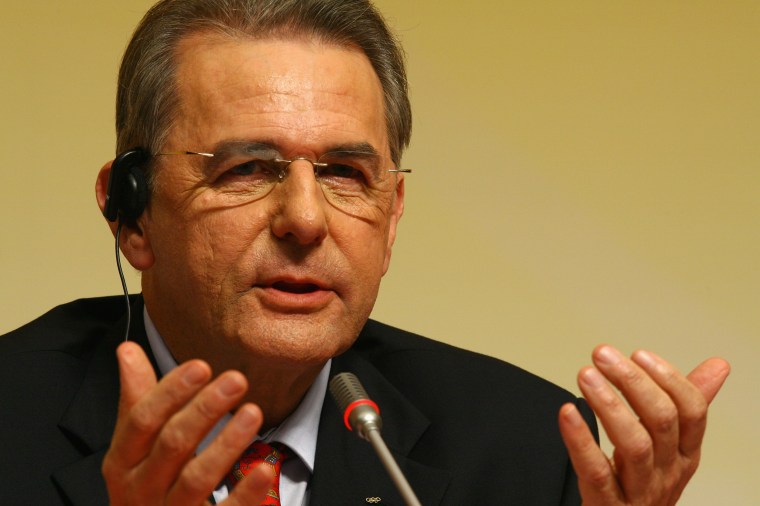International Olympic Committee president Jacques Rogge renewed his call Wednesday for governments and sports bodies to speed up implementation of global rules on fighting the use of performance-enhancing drugs.
So far, 87 countries have ratified a UNESCO convention that binds governments to uphold the World Anti-Doping Agency code setting out international drug-testing rules and sanctions — far short of the target of more than 190 signatories.
Sports federations and national Olympic committees must be in full compliance with the code by November, or else face the risk of being excluded from future Olympic Games.
“I call upon the national Olympic committees and international federations to be sure that we meet the deadline of compliance,” Rogge said on the second day of the IOC’s three-day general assembly on the eve of the Beijing Games. “I make an appeal to governments to accelerate the ratification of the UNESCO treaty.”
The UNESCO Convention on Doping in Sport was adopted in Paris in 2005 and came into force early last year, but has not been ratified by all of the nearly 200 countries that had pledged to so in 2003.
The treaty ensures that the WADA code becomes national law and commits member nations to prevent cross-border trafficking of doping substances, support a national drug-testing program and withhold funding from athletes caught cheating.
President Bush ratified the treaty in Washington on Monday before leaving on his trip to Asia and the Beijing Games. His signature followed Senate approval of the convention.
“The timing of the United States’ ratification, on the eve of the Beijing Olympic Games, is appropriate,” Bush said in a statement. “The Convention makes clear that the use of performance enhancing drugs to gain a competitive advantage undercuts the positive attributes of sport.”
WADA president John Fahey said Cuba and Belgium were also on the verge of completing ratification.
“You have reassured me,” said Rogge, who is from Belgium. “I felt a little bit embarrassed talking about doping when my country had not signed.”
The 28 summer Olympic sports federations accepted the anti-doping code before the 2004 Athens Games, but not all have fully complied with the rules. WADA hasn’t identified which sports fall short, giving them until November to come into line. Compliance is required for inclusion at the Olympics.
“We are confident we will reach compliance,” Fahey said. “WADA will give every assistance for all stakeholders to be compliant by November.”
The IOC formally accepted the revised WADA code by a show of hands. The document was passed at a global doping summit in Madrid, Spain, last November and will come into force on Jan. 1.
Fahey said WADA delegates will act as independent observers during the Beijing Games, which will feature a record 4,500 drug tests, including blood screenings and controls for EPO and human growth hormone. Dozens of athletes around the world have been dropped from Olympic teams after failing recent pre-games tests in their home countries.
“The real onus is on the countries and sports federations to ensure that the athletes who have been sent to Beijing are clean,” Fahey said. “WADA, the IOC and BOCOG (Beijing’s organizing committee) cannot guarantee that all athletes at the games will not try to dope.
“We can be sure, however, that anybody who dopes risks getting caught as the testing will be more frequent and significant than at any other Olympic Games.”
